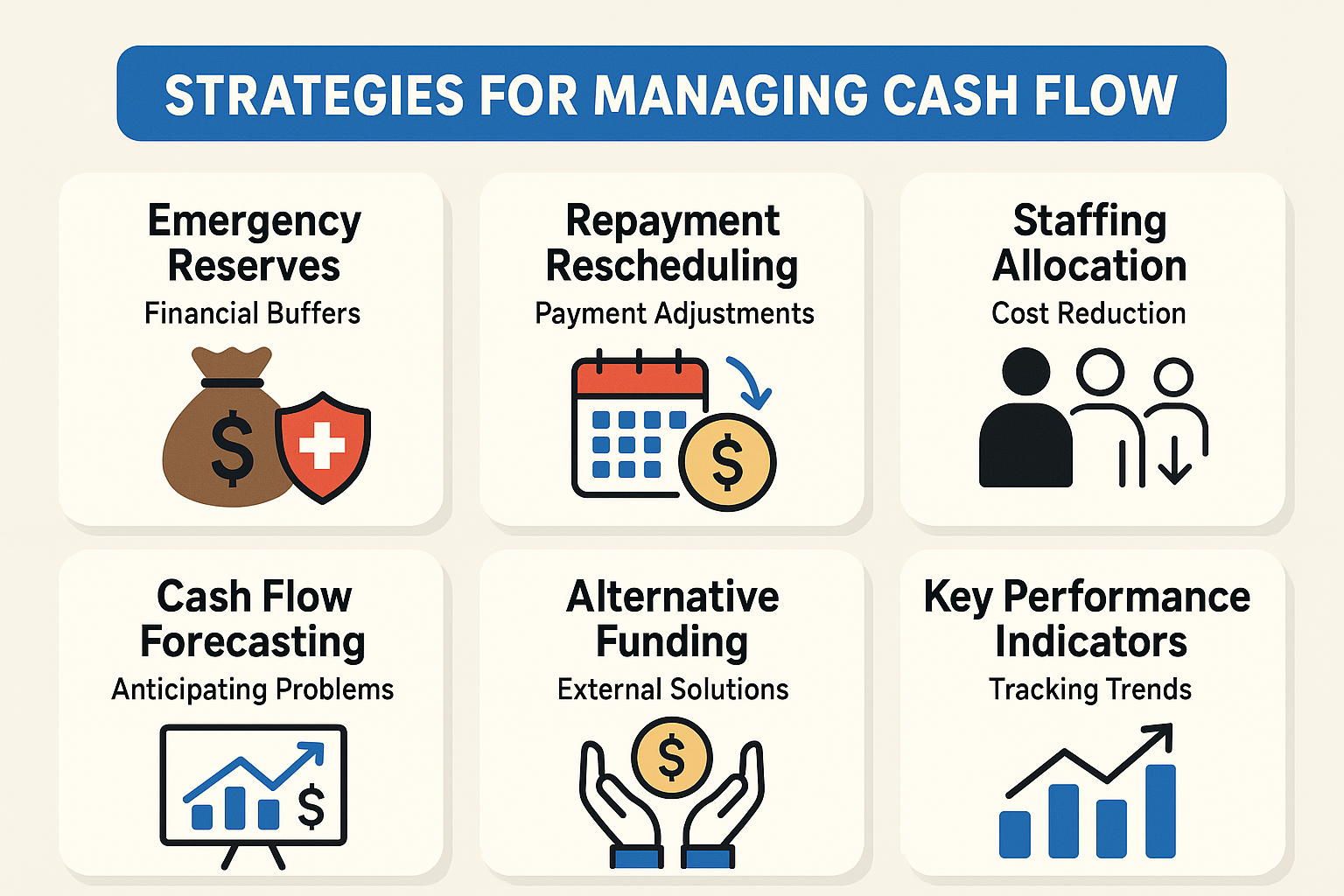How to Handle Cash Flow After Project Delays
Project delays can turn a profitable venture into a financial nightmare faster than you'd expect. When timelines stretch and payments get pushed back, many businesses find themselves caught between mounting expenses and shrinking resources. The reality is that over half of businesses struggle with high upfront costs, while nearly 40% face extended waits for client payments.
Understanding how to handle cash flow after project delays isn't just about surviving the immediate crisis. It's about implementing smart strategies that protect your business from future disruptions while maintaining operational efficiency. Whether you're dealing with construction setbacks, manufacturing delays, or service delivery issues, the right approach can mean the difference between weathering the storm and facing serious financial strain.
Essential Emergency Reserve Strategies
Building and managing emergency reserves effectively can make or break your ability to handle cash flow disruptions when project delays hit. These financial buffers serve as your first line of defense against unexpected expenses and delayed payments.
- Set aside 10-15% of project value before work begins to cover potential delays and cost overruns that might emerge during execution
- Create separate reserve accounts for different project types to ensure funds remain available when specific delays occur
- Review reserve levels monthly and adjust based on project complexity and historical delay patterns in your industry
- Use reserve funds strategically to maintain critical operations while negotiating extended payment terms with suppliers and creditors
Smart Repayment Rescheduling Techniques

When project delays impact your cash flow, repayment rescheduling becomes a crucial tool for maintaining financial stability. The key is approaching creditors proactively rather than waiting until you're behind on payments.
- Contact creditors immediately when delays become apparent to discuss temporary payment adjustments before missing any scheduled payments
- Propose realistic revised schedules that align with your expected cash flow recovery timeline and demonstrate your commitment to fulfilling obligations
- Document all agreements in writing to avoid confusion and ensure both parties understand the new payment terms and conditions
- Maintain partial payments when possible to show good faith and keep relationships strong during challenging periods
- Prioritize critical suppliers whose services are essential for project completion and ongoing business operations
Effective Staffing Allocation Adjustments
Smart staffing allocation during project delays can significantly reduce your operational costs while keeping essential team members engaged and ready for project resumption.
- Reassign skilled workers to other active projects or maintenance tasks that add value instead of keeping them idle during delays
- Implement flexible scheduling that reduces hours temporarily while maintaining core team availability for when projects resume
- Cross-train employees during downtime to increase versatility and productivity when normal operations restart
- Consider temporary layoffs for non-essential positions while ensuring key personnel remain available for project continuation
- Negotiate with labor unions or employee groups for temporary concessions that help preserve jobs long-term
Cash Flow Forecasting and Monitoring Tools
Accurate forecasting becomes even more critical when dealing with project delays, as it helps you anticipate problems before they become crises and make informed decisions about resource allocation.
- Update forecasts weekly to reflect changing project timelines and adjust expectations for incoming payments and ongoing expenses
- Track key performance indicators such as days sales outstanding and average payment delays to identify trends early
- Create multiple scenarios including best-case, worst-case, and most likely outcomes to prepare for various delay durations
- Monitor daily cash positions to ensure you have enough liquidity to cover immediate obligations and unexpected costs
- Use rolling 13-week forecasts to maintain visibility into both short-term needs and longer-term recovery patterns
Alternative Funding Solutions for Delayed Projects
Sometimes internal cash management isn't enough, and you need external funding to bridge the gap created by project delays. Understanding your options helps you choose the right solution for your specific situation.
- Invoice factoring can provide immediate cash by selling your outstanding invoices at a discount rather than waiting for customer payments
- Equipment financing allows you to leverage existing assets to access working capital without giving up ownership permanently
- Revenue-based financing offers flexible repayment terms that adjust based on your actual cash flow recovery rather than fixed schedules
- Supplier financing programs may provide extended payment terms or early payment discounts to help manage cash flow during difficult periods
- Business credit lines offer on-demand access to funds for unexpected expenses while you wait for delayed project payments
Learning how to handle cash flow after project delays requires a combination of proactive planning and reactive strategies. By building robust emergency reserves, maintaining open communication with creditors, and making smart staffing decisions, you can navigate even significant project setbacks without compromising your business's long-term health.
Remember that every delay teaches valuable lessons about risk management and financial planning. The businesses that thrive aren't those that never face delays, but those that develop resilient systems for managing them effectively. Start implementing these strategies today, and you'll be better prepared for whatever challenges your next project might bring.

.png)






